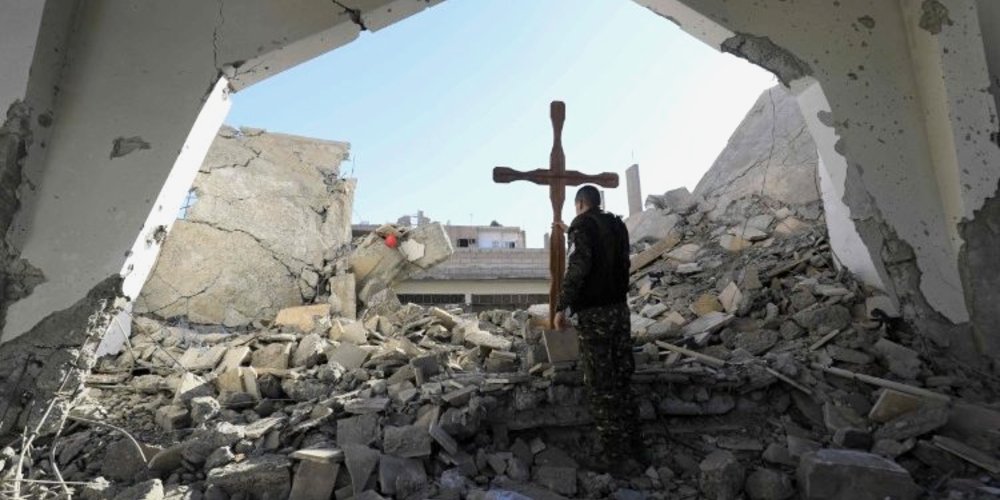(WND News Center)—Mike Pompeo, the former chief of America’s Central Intelligence Agency and former secretary of State, now senior counsel for global affairs with the American Center for Law and Justice, has listed the nations that in 2024 are persecuting Christians.
At least some of the top persecutors.
At the ACLJ website, he explains his family’s priorities for Christmas, what he calls a special time for family.
“But Christmas is also special to our family for another, even more important reason: As Christians, Christmas is a reminder that Light has come into a dark world. The miracle of Christ’s birth in Bethlehem changed the world forever, and I believe that He remains our greatest hope despite the many challenges we face today,” he said.
While Americans have freedom to worship, there are Christians in other nations who don’t.
“Our prayers should begin with Christian communities in Syria. During my time as Secretary of State, we brought to an end the horrific ISIS caliphate that had inflicted unimaginable crimes on Christians across Syria and Iraq, as well as on other religious groups. While the Islamic State’s territorial defeat was a major step, the remnants of its brutal persecution remain, and the fall of Bashar al-Assad is likely to invite even greater persecution of Christians in the country,” he explained.
That’s why, he said, “it is so important for the United States to continue working with Israel, the only truly pluralistic nation in the Middle East that offers full religious freedom.”
He explained, “In the first Trump administration, we prioritized religious freedom because it is deeply tied to global stability, prosperity, and freedom. Pray that Christians in Syria do not suffer further terror and hardship in the coming weeks and months, and pray for our leaders to defend the faithful.”
Next, he said, there are new challenges to religious freedom in Ukraine.
“While at home, Vladimir Putin has cast himself as a righteous defender of Christianity, his Russian military has actively sought to destroy the presence of the church in Ukraine. More than 500 churches have been destroyed or seriously damaged by Russia’s forces since the invasion began in 2022. Orthodox churches loyal to God, rather than to Putin’s regime, have faced closures, their clergy members have been arrested, and their worshipers have been intimidated,” he warned.
And he’s jailed “Protestant and Russian Orthodox clergy alike,” he said.
Then Pompeo said, there’s China.
There, “the suppression of religious expression has reached levels not previously imagined,” he said.
“The Chinese government has detained more than a million Uyghur Muslims in the largest concentration camps ever built. Simultaneously, Christian churches of all denominations face increasing restrictions.”
And the Chinese Communist Party allows only bishops “faithful to the communist regime” to be appointed.
“Many Protestant churches face the removal of crosses, demolition, and the forced integration of Communist Party propaganda into Scripture,” he said. “These actions amount to a deep, systematic effort to ultimately destroy religious freedom.”
Open Doors has reported that more than 365 million Christians in the world, that is one in seven, face high levels of persecution for their faith today.
The group’s World Watch List cites at least 50 nations where it is dangerous for Christians to live.
Content created by the WND News Center is available for re-publication without charge to any eligible news publisher that can provide a large audience. For licensing opportunities of our original content, please contact licensing@wndnewscenter.org.
This article was originally published by the WND News Center.



